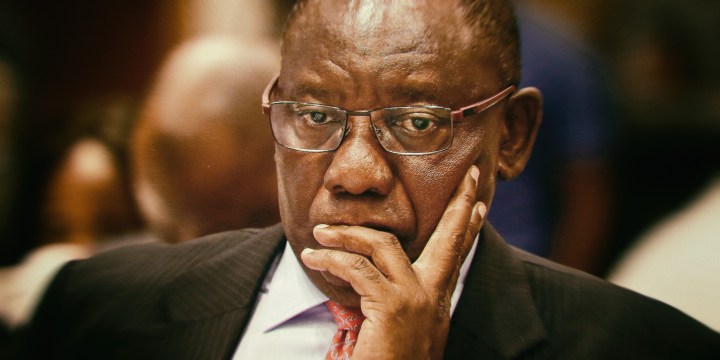OP-ED
Play it safe: Keeping our distance from the elderly could be saving their lives

As part of the national effort to contain coronavirus, protecting the general population from becoming infected must be matched by efforts to protect people who are at greater risk.
Dear Fellow South African,
For those fortunate enough to have an elderly parent or grandparent still alive, not being able to spend time with them has been one of the most difficult parts of the lockdown.
For millions of senior citizens, social activities like meeting friends and family and attending religious services and stokvels and burial society meetings are the mainstay of their lives.
Because of social distancing regulations, most of these activities have been curtailed, potentially leaving them feeling socially isolated and lonely. And leaving their loved ones anxious for their well-being.
The reality, however, is that in keeping our distance from our elderly parents and grandparents at this time we could be saving their lives.
The coronavirus can infect anyone, but older people are among those at highest risk of getting severely ill and possibly dying. Sadly, there have been a number of coronavirus outbreaks at old age homes and care centres, resulting in a number of deaths.
In addition, data released by the Department of Health indicates that people with underlying medical conditions such as high blood pressure, diabetes, heart disease, renal disease, asthma and chronic respiratory disease are more vulnerable to developing severe complications and dying from coronavirus.
According to new research published by the National Institute for Communicable Diseases, a third of patients admitted to hospital with Covid-19 had at least one comorbidity.
This is a significant concern in a country such as ours that also has high prevalence of HIV and tuberculosis, the leading cause of natural deaths in South Africa last year.
Additionally, more than 4.5 million South Africans have diabetes, a figure that has doubled since 2017. In the Western Cape alone, diabetes is a comorbidity in over half of all Covid-19 deaths.
In a number of our provinces, including Gauteng and Western Cape, testing is being offered to people with comorbidities such as diabetes whether they show coronavirus symptoms or not. This smart approach to screening and testing is part of our effort to limit infections among those most vulnerable.
We will continue to be led by scientific evidence and adapt our strategies where necessary.
As part of the national effort to contain coronavirus, protecting the general population from becoming infected must be matched by efforts to protect people who are at greater risk.
Throughout the nationwide lockdown period, we have taken measures to ensure that those who rely on chronic medication or treatment are able to visit health facilities.
The Department of Social Development has set dietary standards on the food provided to communities during lockdown to ensure they of nutritional value, which is particularly important when managing diabetes. Companies can play their part by keeping basic food prices down, which means that people don’t need to seek out cheap processed foods of poor nutritional value.
Among the many cases being made for the National Health Insurance is that we will be able to mobilise the necessary resources to overcome the burden of these non-communicable diseases and improve the health outcomes of all our people, not just those who can afford to pay.
Until we have overcome this pandemic, we all have to play it safe, for ourselves and those around us.
Difficult though it may be, we should not expose our elderly mothers and fathers to the virus through social visits. Let us keep in touch with them by phone or video messaging.
If they live with us, let us ensure we observe proper hygiene at all times by washing and sanitising our hands. Frequently touched surfaces, including equipment used by our parents and grandparents like walkers and canes, should be frequently cleaned.
We should limit our shared spaces where possible and wear a mask when around our elderly relatives. At the same time we must be led by common sense and not isolate elderly or sick relatives at a time when they need us most.
People with underlying medical conditions like diabetes and hypertension should be extra cautious. They should observe social distancing, stay home if possible and stay away from crowded places. Like everyone else, they should practise good hygiene and continue to take their medication.
One of the lessons from this pandemic is that we need a holistic approach to health. Anecdotal evidence suggests many of our people have used the lockdown period to make positive lifestyle changes like doing more exercise or quitting smoking. Such developments should be welcomed. If some of us have become healthier during the lockdown, we should continue in this vein.
Reducing the burden of lifestyle-related diseases on our health system is ultimately in the best interests of our health, our economy and our own personal finances.
While the Covid-19 fatality rate is low in South Africa compared to the rest of the world, the rising number of infections is a caution against complacency.
If we follow all the prevention measures we will be able to protect ourselves. We will also, through our everyday actions, protect and keep safe those who are most vulnerable.
Let us remain cautious. Let us remain vigilant. Let us stay safe.
With best wishes,
Cyril Ramaphosa. DM
This is the president’s weekly letter, released Monday 6 July, 2020.
"Information pertaining to Covid-19, vaccines, how to control the spread of the virus and potential treatments is ever-changing. Under the South African Disaster Management Act Regulation 11(5)(c) it is prohibited to publish information through any medium with the intention to deceive people on government measures to address COVID-19. We are therefore disabling the comment section on this article in order to protect both the commenting member and ourselves from potential liability. Should you have additional information that you think we should know, please email [email protected]"






 Become an Insider
Become an Insider